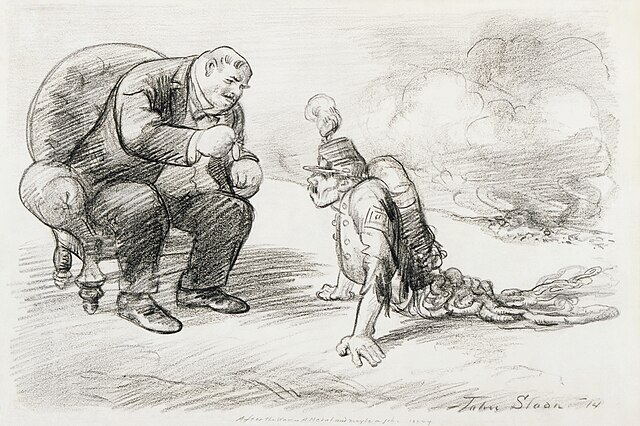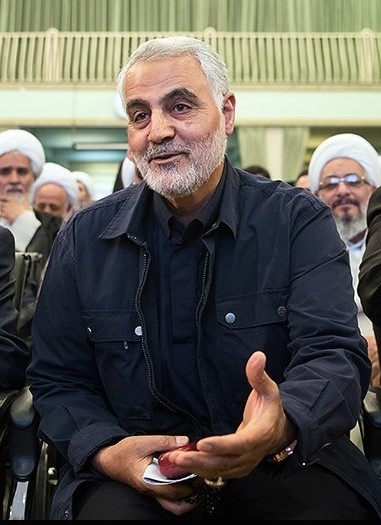Welcome to the Moment of Truth: the thirst that is the drink.
"Some men are intimidated by strong women." This has been a glib, empty, un-self- aware dose of pabulum on the left for at least the last thirty years. A moment's reflection reveals its nonsensical nature. A moment's reflection is something frowned upon on the left, unless it's reflection of an acceptable dogma or bland agreement. Yes, strong people intimidate weaker people. But you're not being woke or clever or anything remotely laudable by pointing it out. Capitalism exacerbates that dynamic, incidentally. Your strength is both increased and rendered more intimidating by capitalism. Consider that, if you can.
Yes, I'm intimidated by strong women. Why shouldn't I be? Like strong men, they can reject me socially, hurt me physically, humiliate me, or merely exert power over me to my detriment. I'm supposed to feel ashamed of being intimidated? Blow me. I've got enough negative feelings just being intimidated, I'm not going to judge myself for it. Especially not by your criteria.
Yes, I've intimidated others, and I'm not proud of it. There are ways to defuse the intimidation dynamic, if you want to, if it's important to you, but it takes work, and some humility on your part. You have to be secure in yourself. And yet humble at the same time. That's the burden of the strong. That's how you see beyond your privilege.
Don't worry, I'm not very good at it either.
This is the duty, in my opinion, of everyone with privilege, whether white, male, rich, beautiful, or otherwise gifted, exalted, or accomplished. The people who understand this are incredible, you know them when they reach out from their strengths and lift you up simply through the act of reaching. Not everyone has the ability, and even fewer want to have it. It's a singular strength, the ability to be humble and open about one's strengths, because we live in a culture that rewards bullying and egoism and not caring. Winning. We're all about winning, and we have a very narrow definition of victory.
But in some ways, that's the kind of animals we are. We jockey for prestige, we cultivate the best people as friends, we learn the tricks of making ourselves useful and helpful, or trusted, or admired, or highly regarded. And if we fail at these things, we lose. We become poor or lonely. In short, as a species, we are cliquish a-holes.
We also congratulate ourselves on not being the types that are... read more
Listen live from 9AM - 1:00PM Central on WNUR 89.3FM / stream at www.thisishell.com / subscribe to the podcast
9:20 - Writer John Pat Leary translates the new language of capitalism in the 21st century.
John is the author of the forthcoming book Keywords: The New Language of Capitalism from Haymarket Books.
10:00 - Live from São Paulo, Brian Mier explains what Jacobin got wrong about pre-coup Brazil.
Brian is a co-author of the article How the US Left Failed Brazil for Brasilwire.
10:35 - Sociologist Dylan Riley explains what Donald Trump is - if he's not a fascist.
Dylan wrote the article What Is Trump? for the New Left Review.
11:05 - Writer Tony Wood explores Russian politics beyond the shadow of Vladimir Putin.
Tony is author of Russia Without Putin: Money, Power and the Myths of the New Cold War from Verso Books.
12:05 - The Hopleaf's Michael Roper reviews a down year in the craft beer industry.
Michael will dig into brewery closings, the hops bubble and a general decline in beer drinking - Chuck isn't contributing to that last thing.
12:45 - In a Moment of Truth, Jeff Dorchen can't win for losing, can't lose for winning.
Welcome to the Moment of Truth: the thirst that is the drink.
You all remember Leonard Cohen? He was alive not long ago. He wrote many songs including "Hallelujah," which has been covered by many singers, including, most famously, the tragically late Jeff Buckley.
Leonard sings about a secret chord that David played and it pleased the Lord. I've always wondered why it was secret and not sacred. "I've heard there was a sacred chord." Even sung that way, it still sounds like a secret, so you don't lose that concept. "I've heard there was this chord." Oh, it's a rumor? A secret? Illicit or elusive knowledge?
And what kind of secret is it, anyway? "It starts like this, the fourth the fifth the minor fall the major lift..." What kind of secret is that? He knows every interval in this chord he's only heard about and it's a secret? How does he know every interval in the secret chord? A chord a baffled king used at least 3000 years ago? Well, he's a kabbalist, we know that about Leonard Cohen. He got the knowledge somehow.
Ancient Jewish secret, huh?
"The baffled king composing Hallelujah." David, like Leonard, was a songwriter. Why baffled? Well, I've heard there's a secret doctrine, a pretty damn sacred secret doctrine about King David being insane.
Baffled king, mad king, the cosmos and the lord filled him. He was full of the lord. And he was insane with his love of God and his openness in song to God.
David, in his madness and love, decided he needed to sin in order to help God have a relationship of sin and redemption with him. Because he was too perfect a servant of God, he was too open to God, he was too full of God like as if to become one unto God!
David was too good. God couldn't handle it. And so David resolved to debase himself with sin, and take Bathsheba, the wife of Uriah the Hittite, and bed her in a sinful bed. So he could sin in the eyes God, and by penance be redeemed by God. God likes that. It makes him feel useful.
Talk about creating drama. But that's the kind of relationship they had. God and David. Symbiotically dysfunctional. David's 23d Psalm, you'll remember it if I start, A song of David: The lord is my shepherd, I shall not want, he maketh me etc etc, blah blah blah green pastures, blah blah blah still waters, blah blah blah valley of the shadow of death, blah blah blah fear no evil, rod and staff, set a table, anoint with oil, ah, "My cup runneth over." That's the King James translation.
... read more
Listen live from 9AM - 1:00PM Central on WNUR 89.3FM / stream at www.thisishell.com / subscribe to the podcast
9:20 - Live from Paris, journalist Cole Stangler traces the class lines running through France's Yellow Vest movement.
Cole wrote the articles What’s Really Behind France’s Yellow Vest Protest? for The Nation and “Yellow Vests” Against the “President of the Rich” for Jacobin.
10:05 - Writer Sohaila Abdulali talks about what we do (and don't) talk about when we talk about rape.
Sohaila is author of What We Talk About When We Talk About Rape from The New Press.
11:05 - Political scientist Neta C. Crawford examines the brutal, ongoing human cost of America's wars.
Neta is author of the paper Human Cost of the Post-9/11 Wars: Lethality and the Need for Transparency for Brown University's Watson Institute.
11:35 - Investigative journalist Yasha Levine exposes the greedy, vampiric heart of California's pistachio industry.
Yasha's documentary, Pistachio Wars: Killing California for a Snack Food is raising funds for post-production at Kickstarter right now. Help em out!
12:05 - Writer Jesse Bering explains what happens in the brain (and life) of the suicidal person.
Jesse is author of the book Suicidal: Why We Kill Ourselves from University of Chicago Press.
12:45 - In a Moment of Truth, Jeff Dorchen sees the glass as entirely full.
Guess those Wellbutrins are kicking in.








